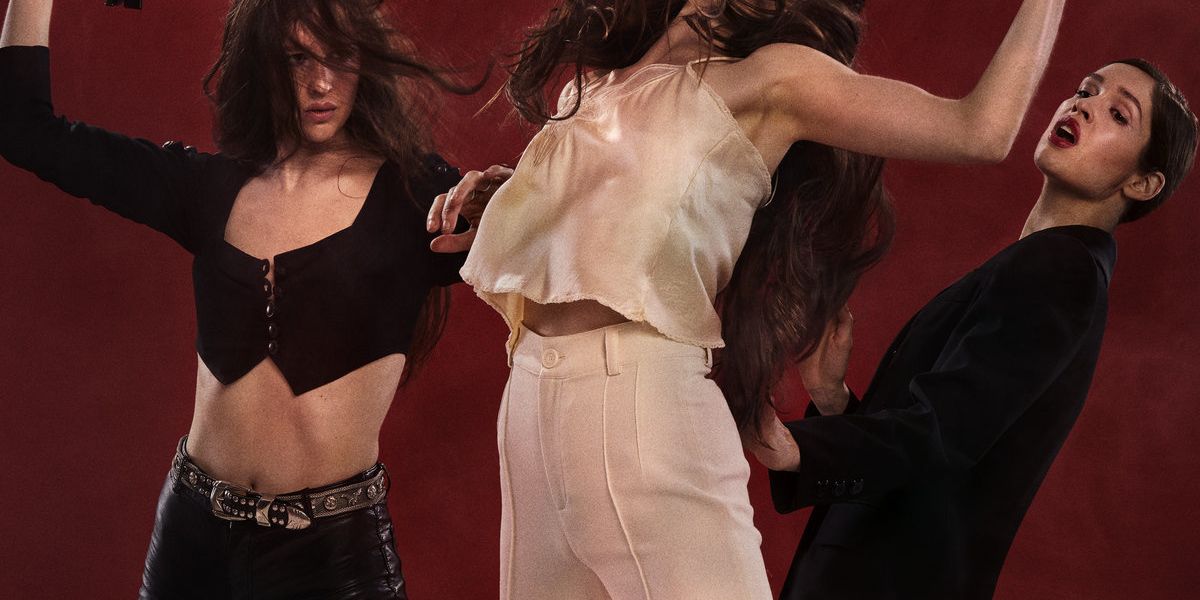Renegade Breakdown is the title of Marie Davidson’s latest album, and renegade is an apt term with which to describe the Montreal musician’s approach to her craft. Her previous albums – masterpieces of minimalist electronics – established her reputation on the international club scene, reinforced with years of gruelling tours and live performances. In August 2019 she very publicly announced an end to that lifestyle, speaking candidly with media about the serious impacts it has on musicians’ health. She focused on rebuilding her own health and opening herself up to a broader range of musical possibilities.
Her newest album is a delightful and eclectic release that superbly fulfills her promise to “tell stories and sing”. It’s credited to Marie Davidson and L’Œil Nu, the latter referring to her husband Pierre Guerineau (with whom she also releases music as the electronic duo Essaie Pas), and Asaël R. Robitaille.
Musically, the album is profoundly varied in comparison with its predecessors. Tracks like “Renegade Breakdown”, “Worst Comes to Worst”, and “C’est parce que j’m’en fous” retain Davidson’s trademark electronic style. The former sounds like a natural progression from her previous album, an irony surely not lost on listeners who discern Davidson’s characteristically sarcastic commentary in the lyrics. “I’m not a slave of your institution / You want a weapon of mass distraction / I’ll give you a demonstration / Oh, by the way, there are no money makers on this record / … / The uglier I feel, the better my lyrics get / … / I don’t cling on to products / … / I really don’t need an applause / Your party sucks anyway.”
“C’est parce que j’m’en fous” continues the focus on discerning one’s truths, revealing the personal as political. “Listening to your useless debates makes me laugh / The real challenge is to live while staying true to yourself / … / The pseudo-feminists, mustachioed men, avant-gardistes, and Santa Clauses … I don’t care.” These tracks exemplify Davidson’s trademark, whimsical sense of humor coupled with caustic social commentary, complemented perfectly with jaunty electronic beats equal parts 1980s kitsch and irrepressible synthpop.
Other songs veer into more traditional pop territory. “Back to Rock”, “Center of the World”, “My Love”, and “Sentiment” reveal Davidson’s exploration of the singer-songwriter form, dreamy pop constructions that range from the folksy to the anthemic. “La Ronde”, delivered in Davidson’s native French, is utterly enchanting both lyrically and musically, its gently tolling bells and swelling progression evocative of classic French folk tunes.
“Just in My Head” is a softer, cabaret-style piece set to a subtle jazzy backdrop. Davidson’s electronic expertise shows a different side here: the background ambience, shifting atmospherics, and deftly manipulated sampling take the piece to a higher, more transcendent level than one would expect from a typical pop musician. This is the sign of a true artist – the ability not merely to operate in multiple styles and genres but to discover ways of adapting one’s tools to innovate the other.
“Lead Sister” is a more experimental electronic track, a dedication of sorts to Karen Carpenter of the iconic 1970s band the Carpenters, who died of complications relating to an eating disorder. Davidson became fascinated by her story and constructed the song – also delivered in French – as a poignant and touching tribute. It, too, reveals a remarkable diversity of style, ranging from ambient symphonics and synth crescendos to ominous, almost industrial soundscape.
Renegade Breakdown is a brave album, one that is not afraid to transcend genre in its exploration of style and technique. Blending synthpop electronics with folksy pop ballads risks alienating either potential audience. In a way, it reveals not just Davidson’s devotion to her musical craft but also a profound trust in her listeners’ ability to approach the album with an open mind and without preconceptions. The discerning listener will emerge from the experience feeling pleasantly transformed, newly aware of the intersections that can be made between the electronic beats of driving synth soundscapes and guitar-driven, song-centered pop ballads.


